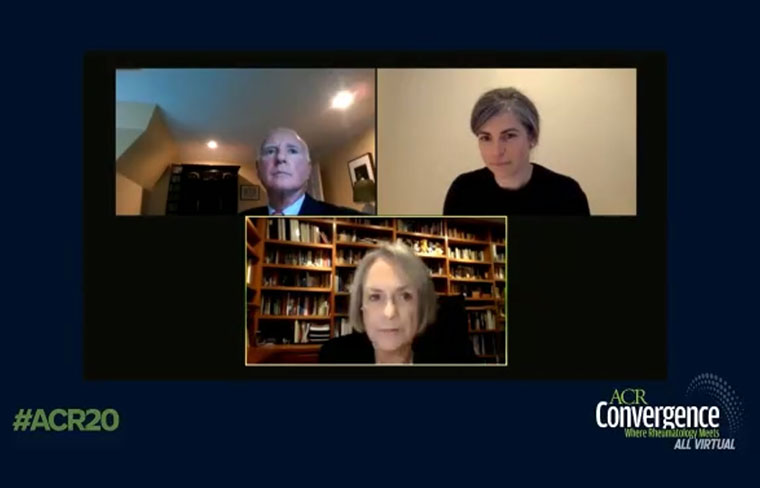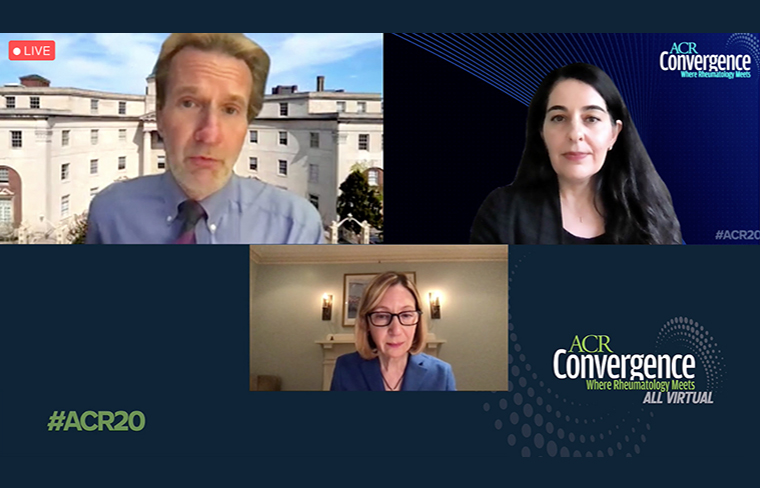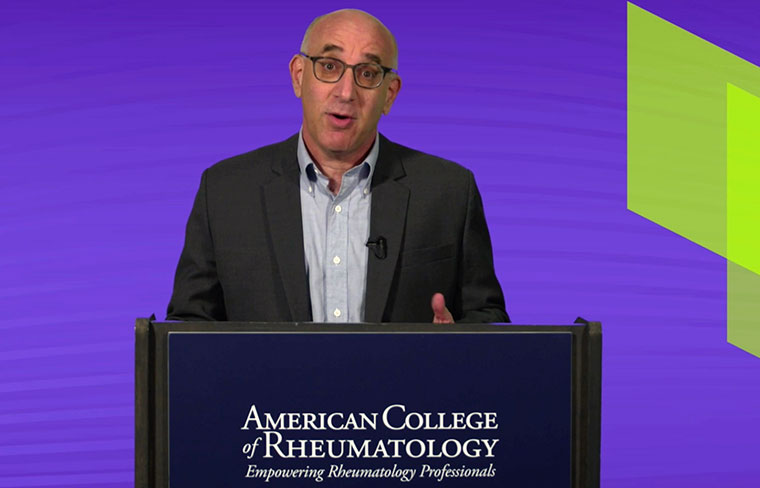-
Experts debate when to use JAK inhibitors to treat RA
Growing data suggests that JAK inhibitors may be more effective than TNF inhibitors for the treatment of RA. The Great Debate asked, is it time to revisit the ACR guideline?
-
Year in Review highlights top clinical, basic science papers
The 2020 version of the Year in Review included looks at positive lupus trial results and high-dimensional profiling by single-cell RNA-sequencing.
-
NEJM editor-in-chief discusses the convergence of inflammation and infection in COVID-19 pathogenesis
Better understanding of the interface between the mechanisms that define infectious disease and rheumatology is contributing to progress toward COVID-19 treatments and a vaccine, according to Eric Rubin, MD.
-
Put patients in charge of making positive change for themselves and others
Support and encouragement to get involved can change a patient’s trajectory, says this year’s ARP Keynote lecturer.
-
Session to offer long string of clinical pearls to benefit rheumatologists
“We’re hoping to tackle some challenging areas in day-to-day practice that don’t always fit in the traditional talks that are given at the meeting,” said Jason Kolfenbach, MD.
-
Role of diet, nutrition in rheumatology care continues to expand
Clinicians need knowledge in this area because patients will come to them with questions and interest in these treatments, said Neha Shah, MD. Patients want additional things that they can do to help their autoimmune process besides prescription medications.
-
New biomarkers, new drugs show promise for improving lupus nephritis outcomes
Biomarkers have the potential to turn that tide through earlier identification of need for intervention, earlier identification and follow-up of specific organ involvement, better measuring of disease activity, and increased ability to predict disease severity.
-
Rarity of disease hampers care of CNO patients
There are not enough providers who feel comfortable taking care of adults with synovitis, acne, pustulosis, hyperostosis, osteitis (SAPHO) syndrome, and many rheumatologists may treat only one or two of these patients in their careers.
-
New Down & Dirty 30 sessions to deliver important overviews of critical topics
New for ACR Convergence 2020, the Down & Dirty 30 sessions will present rheumatology professionals a high-level overview of four of the field’s most important topics.
-
Better understanding of B cell/T cell interaction could lead to new treatment targets
Communications between B cells and T cells have a fundamental role in autoantibody production, and an educational session at ACR Convergence 2020 will review how follicular T helper cells, germinal center B cells, and plasma cells impact autoimmune disease.








